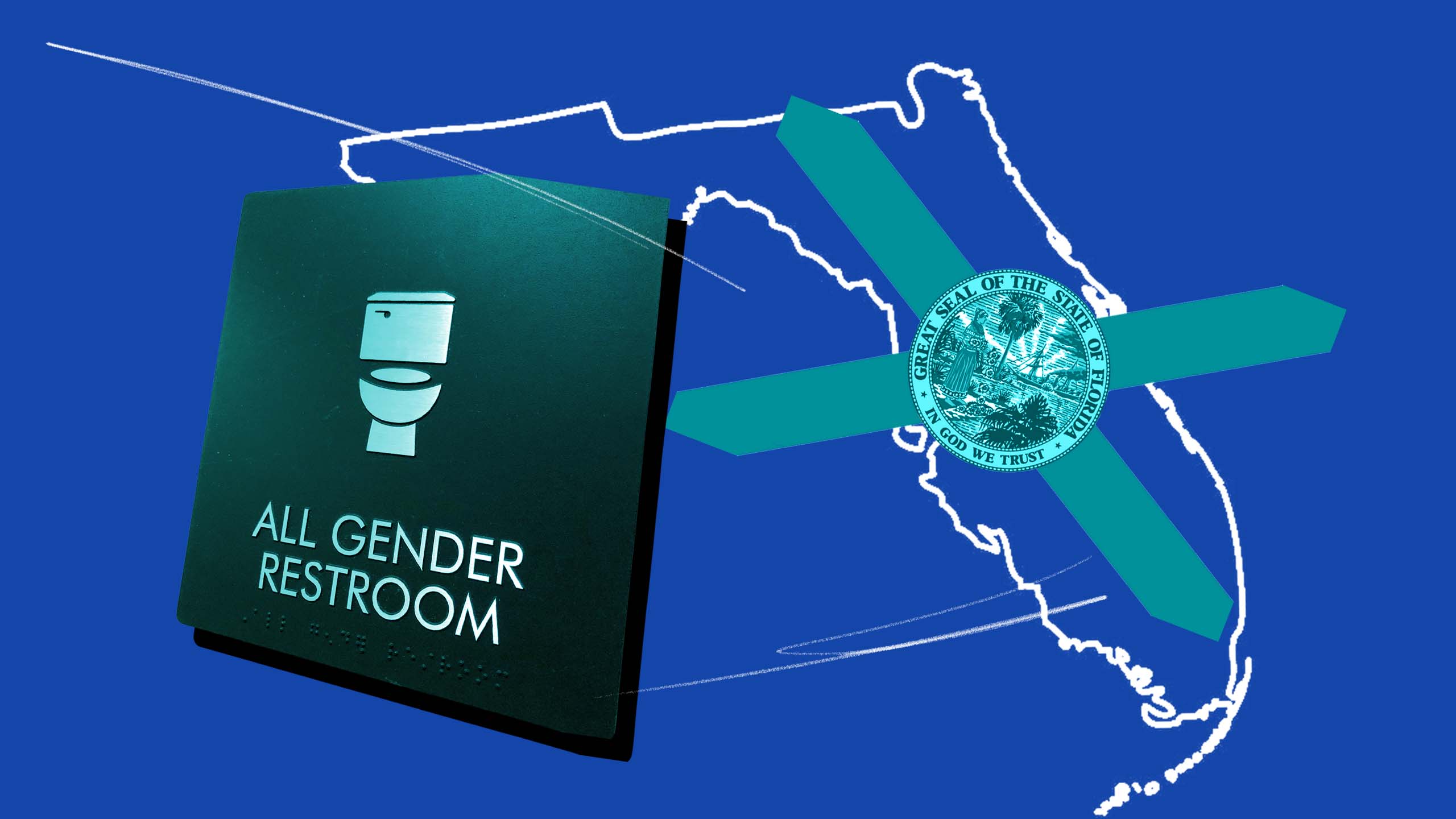In the midst of both election season and hurricane season, the Florida government is once again targeting teachers and trans students with a series of new policies designed to further enforce its notorious “Don’t Say Gay” law.
Under a new rule approved by Florida’s State Board of Education on October 19, all school boards across the state will be required to notify parents by mail and via their website if they have a policy in place allowing for “separation of bathrooms or locker rooms according to some criteria other than biological sex at birth.” The rule also requires that schools “ensure that all students have an opportunity to use a bathroom or locker room separated by biological sex at birth.”
The other rule, which was published to the state’s Department of Education website without fanfare in the midst of the recent Hurricane Ian, states that teachers in K-3 classrooms who discuss sexual orientation or gender identity could potentially have their teaching licences revoked. It also threatens the same punishment for any instructor who violates the “Stop WOKE Act,” an anti-“critical race theory” bill signed by DeSantis in April that prohibits discussions of race and racism in schools, which was temporarily blocked in August by a Tallahassee district court.
Advocates for trans and queer youth in Florida blasted the new rules as discriminatory and harmful for teachers and trans students. Joe Saunders, senior political director of LGBTQ2S+ advocacy organization Equality Florida, said the move is “another cruel attack from an administration that has spent months punching down at Florida’s LGBTQ2S+ youth and families” in a statement.
“Qualified, effective teachers are fleeing the profession in Florida thanks to the constant politicization of their roles and discrediting of their characters by the DeSantis administration,” he said in a statement to Xtra. “This escalation in deference to the far-right agenda of the governor makes our schools less inclusive—and less safe.”
Ryan Wilson, associate regional campaign director for the Human Rights Campaign, added that the new policies are a “nakedly political move at the expense of Floridian children.” In a statement, Wilson noted that the midterm elections are now just weeks away and that politicians like DeSantis, who is up for reelection, have made anti-trans policies a part of their campaign platform. (DeSantis is currently leading his Democratic challenger in all polls and is expected to win another term.)
“The rules do not solve any actual problems facing Florida’s students, but are just another example of the DeSantis administration’s reach into the classroom via bureaucratic rules that place LGBTQ2S+ students and teachers in harm’s way,” he said.
Daniel Merkan, director of policy with the Jacksonville-based LGBTQ2S+ advocacy organization JASMYN, told Xtra that the new rule is of “great concern” to groups that work with queer and trans youth. He said that the policies do little to clear up existing confusion with the original “Don’t Say Gay” law, which was criticized for being overly broad and vague. After the law’s passage in March, numerous districts removed rainbow flags from classrooms and gutted affirming guidance for LGBTQ2S+ students, neither of which were technically required under the law.
“The problem is it still leaves a lot of folks, especially for teachers of young students, K-3, in a spot where they don’t have any clearer guidance that tells them exactly what they can and can’t say,” Merkan said. “That’s been left up to each county to comment on that or not, and that’s problematic.”
In the wake of Florida’s “Don’t Say Gay” bill, over a dozen additional states have introduced similar legislation, and a federal version was put forward by congressional Republicans earlier this month. Florida’s version of the legislation, House Bill 1557, prohibits classroom instruction on sexual orientation and gender identity in grades K-3, as well as in any manner that is not “age-appropriate or developmentally appropriate for students.”
As efforts like these proliferate across the country, LGBTQ2S+ advocates warn that young people are going to be the ones more severely affected.
“This law serves no purpose whatsoever, other than to harm LGBTQ2S+ students,” Merkan told Xtra. “The banning of instruction on sexual orientation and gender identities really is just a way of sending a message to LGBTQ2S+ students in particular that they aren’t valued.”


 Why you can trust Xtra
Why you can trust Xtra


